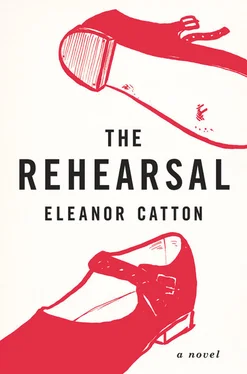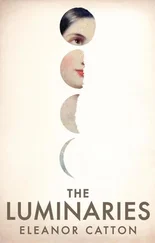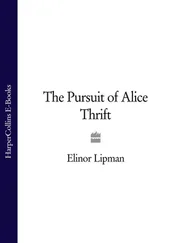Patsy doesn’t reach out and grab the saxophone teacher’s coat, real fistfuls. She doesn’t slide her hands around and scrabble with the hem of the saxophone teacher’s jumper to slip her hands up and feel the skin of the other woman’s back. She doesn’t step forward so their breasts are touching, so their hips are touching, so the lengths of their bodies are pressed together hard. She doesn’t reach up with her hand and cup the saxophone teacher’s face. She just stands there and receives the kiss, her eyes closed. When the saxophone teacher draws back, she opens her eyes, smiles sadly, gives a nod, and walks away.
October
“Preliminary thoughts?” the Head of Acting says in the foyer, as the two of them slap their ticket stubs against their wrists and gaze over at the crowd around the drinks counter. “Or apprehensions, even?”
“Only apprehensions,” the Head of Movement says. He doesn’t smile.
“They’re a motley bunch, this year,” the Head of Acting says in his darting, distracted way. “I am definitely ready to be surprised.”
“What was their prop? The playing card,” the Head of Movement says, answering his own question and rubbing the back of his neck with his hand. “It’s too easy. The aesthetic is half the battle in devised theater anyway.”
“I’m still prepared to be surprised. Let’s go in.”
The heavy doors of the auditorium have opened finally and the flush bolts are being drawn down by a skinny porter, an underling from Wardrobe who has been dressed as an Ace of Spades. He is stiff in his painted sandwich board and careful face-paint as he bends down to clip open the door. He shoves the bolts into their flush sockets and then straightens and adjusts his headpiece, a tight black bonnet that fits like a swimming cap around his skull. He smiles carefully. The tutors hand him their pink-edged stubs, and one after the other pass under the arch and into the stalls.
Saturday
“Thank you all so much for coming,” the saxophone teacher says into the dark. Her voice is higher than its usual pitch, and oddly strained, although she does not look nervous and her hands at her sides are still. “It really is wonderful you’ve all made the time to come.” She looks down to draw a breath, and then continues.
“Like all the thirsty mothers present,” she says, “tonight each of you will see exactly what you want to see and nothing more. Even now you will be aching for me to leave the podium so your daughters can file onstage and each of you can have the great comfort, one by one, of seeing your existing attitudes confirmed.”
Out in the dark someone coughs, giving confidence to someone else, who clears their throat in a relieved echo of the first.
“I like to encourage all the parents to think of a recital as a public display of affection—you’re familiar with the term—in the sense that the performances can never be any more than an indication or a hint,” the saxophone teacher says. “But I must impress upon all of you that it would be invasive and wrong to expect to truly see your daughter when you attend this recital. As mothers, you are barred from sharing in the intimacy and privacy of her performance.”
The saxophone strap around her neck is caught on the side of her collar, tugging it outward and downward to show the thin milky skin of her chest.
She says, “If you were not the mothers of these girls, you might be able to see them differently, as both a person and a kind of a person. If you were not mothers, and if you were looking very carefully, you might be able to see a role, a character, and also a person struggling to maintain that character, a person who decided in the first place that that particular character was who they were going to be.
“There are people who can only see the roles we play, and there are people who can only see the actors pretending. But it’s a very rare and strange thing that a person has the power to see both at once: this kind of double vision is a gift. If your daughters are beginning to frighten you, then it is because they are beginning to acquire it. I am speaking mostly to the woman beneath Mrs. Winter, Mrs. Sibley, Mrs. Odets, and the rest,” she adds, “the actor I pretend not to see, the woman who plays all women, all the women but never the girls, never the daughters. The role of the daughter is lost to you now, as you know.”
She is gesturing with one hand cupped and empty and upturned. The mothers are nodding.
“Let me introduce my first student now,” she says, “a student of St. Margaret’s College who has been studying with me for almost four years. Please let’s put our hands together and welcome to the stage Briony-Rose.”
October
“Stanley?” the boy Felix says, pausing at the door of the Green Room and looking in with an air of officious concern. “Are you all right?”
“I’m going to bail,” Stanley says into the mirror. His face is white. “I can’t do this. The girl’s parents are in the audience. I can’t do it. I’m going to do a runner. I don’t want to be an actor anymore. I can’t follow through. It’ll bugger up the production, but I can’t do it, I’m sorry. I can’t.”
“You’re nuts,” Felix says in what he believes to be a soothing voice. “Think of all the money we’ve spent. If we don’t get box office it’ll come out of everyone’s pocket. Everyone will hate you. You can’t pull out now.”
“I’ll move,” Stanley says. “I’ll move away for a while until everyone has forgotten.” He wants to put his face in his hands, but he has already been through the makeup line and he knows his lipstick and powder will smudge. He howls suddenly and slaps the vanity with both hands. “Why are they here? Why? What kind of sadist parents actually want to see a play about their daughter getting physically abused?”
“What?” Felix says, listening properly for the first time. “You mean the parents of the actual girl? The Victoria girl?”
Stanley moans in reply and kicks the radiator hard. He feels a stab of welcome pain shoot up his calf and linger there.
“Rubbish,” Felix says. “How would they even know about it? Nobody knows what it’s about. It’s opening night. Not even the tutors know. Where did you hear that?”
Stanley turns doleful eyes to Felix and then shakes his head. “I’ve seen them,” he says. “In the foyer. With her little sister.”
There is a pause. Then Felix says, “What kind of sadist parents—”
“She’s come to see me,” Stanley says. “Isolde’s come to see me. As a surprise.”
“Who?” Felix says, by now thoroughly bewildered.
“Isolde,” Stanley says. “Oh, God. And she brought her parents. She doesn’t know what it’s about, she doesn’t know about Victoria or any of it, and they’re just about to—oh, God. I can’t do it. Not in front of them.”
There is a glimmer of panic in Felix’s eyes as it dawns upon him that Stanley might really make good his word and run away. He looks quickly over his shoulder down the dressing-room corridor, and then says, “Your parents here tonight?”
Stanley gives another howl. “My dad,” he says. “To make matters a whole fucking lot worse. My dad.”
“Mine too,” Felix says. Then he says, tentatively, “If the girl’s parents really are here, Stanley, they’ve got to be prepared to be shocked. You can’t actually buy tickets to a show like this and expect to keep your… your innocence. You can’t. They must know what they’re in for. And they’re not kids.”
“But they don’t know what it’s about yet,” Stanley says. “It’s opening night. Where in the fucking program does it say that this is a play about their daughter? It doesn’t. They’re coming to see me, as a surprise.” He looks again at himself in the mirror. The makeup artist has done a good job, powdering over his blond eyebrows and drawing in black arches that are higher and more angular than his own. He has a little red pout, and all the natural shadows of his face are thickened with gray: the creases around his mouth, the hollows of his cheeks, under his chin. His eyes are ringed with black.
Читать дальше












